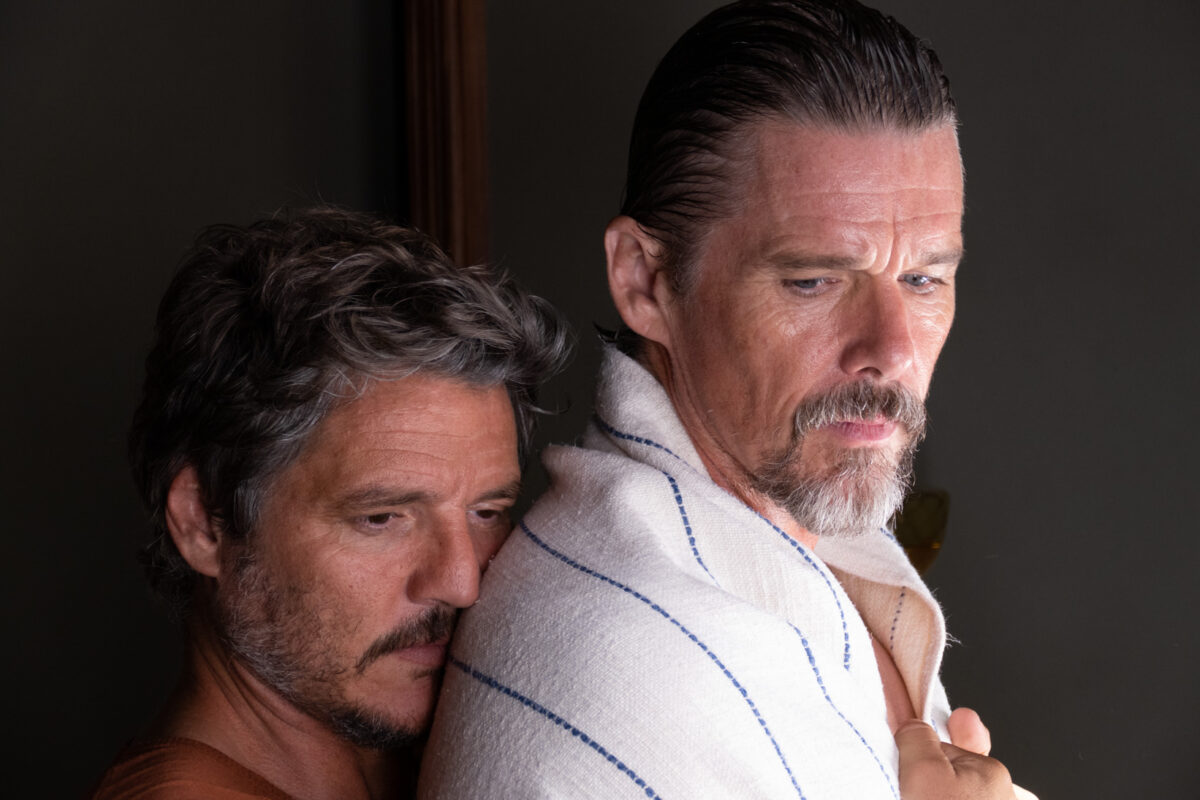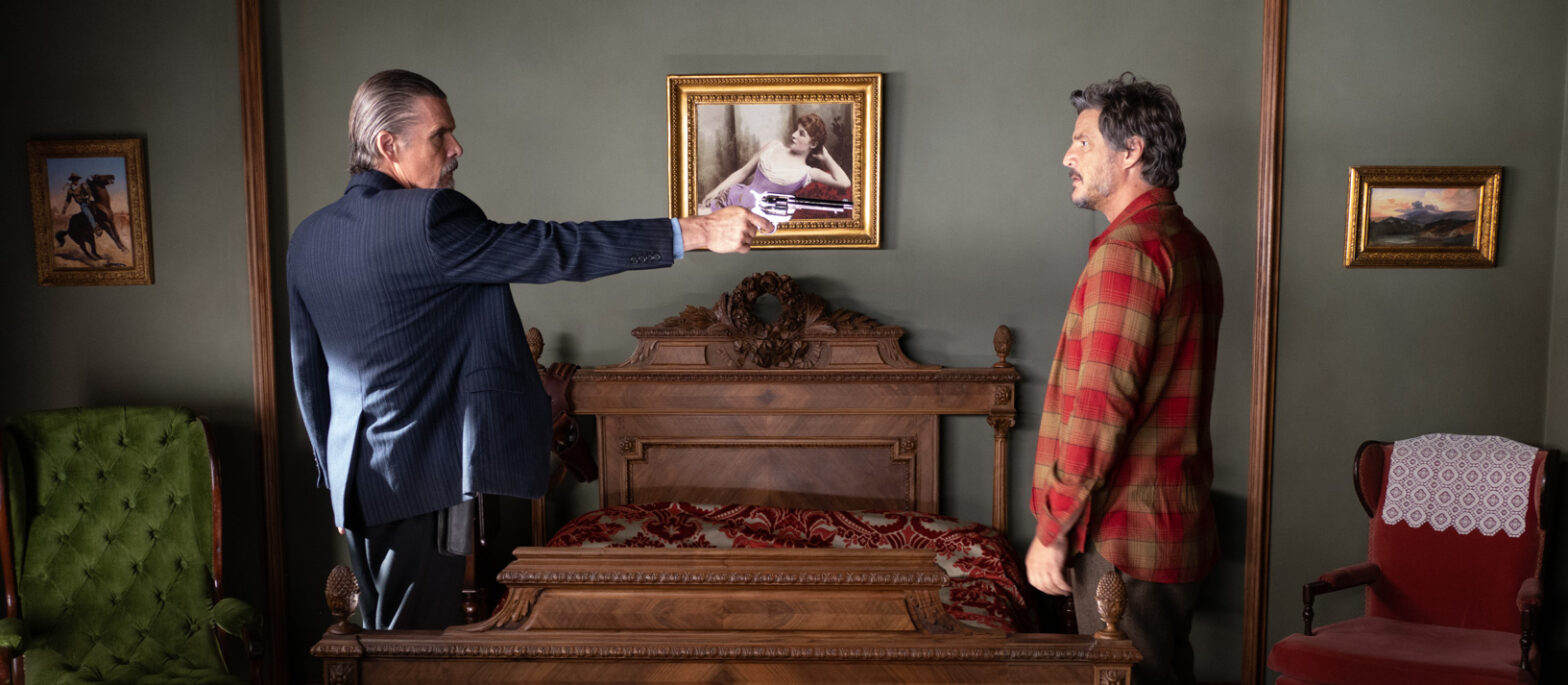The New School Free Press’ Alexiah Syrai Olsen attends the press screenings for The New York Film Festival.
The mid-twentieth century in American cinema was dominated by the Western: a genre depicting a legendary, long-since mythologized age in America filled with cowboys, horses, and criminals. It offered an entertaining escape for viewers, where their problems weren’t as relevant or pressing — if only for an hour and a half.
But with impressive box office sales, companies pushed Western films too hard, ultimately flooding the market and exhausting the public. By the end of the 1960s, the Western had almost disappeared from American screens. Eventually, they found their way back — granted with a tempered frequency. The new short film, “Strange Way of Life,” directed by Pedro Almodóvar and starring Pedro Pascal and Ethan Hawke, is a strange addition to that fabled Western canon.
The film struts an almost identical plot to “Brokeback Mountain,” but “Strange Way of Life” is more comedy than drama. The 30-minute short revolves around Silva (played by Pascal) returning to the old town he grew up in, where he and his old cowboy friend Jake (played by Hawke) started a secret relationship. After moving across the desert, Silva returns to try to win Jake over after a failed attempt before Silva previously moved away.
Through the lens of cinematographer Josè Luis Alcaine, the story unfolds primarily through American shots, a shot from the waistline up: a nostalgic, cinematographic staple of the genre. Pascal and Hawke are both given emotional lines that they deliver seriously and when mixed with that nostalgic, dramatic cinematography, the only thing viewers can do is laugh at the resulting cynical atmosphere. In this way, the film feels similar to a soap opera or telenovela. These genres often demonstrate melodramatic acting, where the viewer encounters emotions that feel forced, and conclusions are handed to you rather than allowing you to come to them on your own.

Pascal’s and Hawke’s filmographies detail their decades of playing serious men handling serious business in thrillers, dramas, or romances. But with their exceptional performances not quite fitting the blending of the Western and telenovela genres, the film comes out to be more humorous than intended. The comedy of the film isn’t necessarily a bad thing, but it doesn’t feel intentional by the director or for the audience’s reception. Especially when the two are fighting, the scenes are depicted as a back-and-forth series of American shots, making us laugh because of the nature in which the cinematography was laid out.
The best way to distinguish a great actor from just a mediocre one is their ability to adapt to drastically different roles and still be able to perform well. That said, Hawke is always committing to roles that differ from each other, which proves that he is more than capable of capturing the essence of a variety of characters. He completely transforms himself into a character — from “Dead Poets Society” to “The Black Phone” and now “Strange Way of Life” — Hawke demonstrates his range and depth as an actor. He’s capable of putting on a show as characters who are complete opposites: a student passionate about Shakespeare, a serial killer targeting children, and now a queer lover in the desert.
As Hawke shined in his role, Pascal merely sat in the back and let Hawke bask in the spotlight. It might be because Hawke has been in the industry for a while and Pascal is just starting to get his footing. But it feels like Pascal may not have put all of his available effort into the performance. Let there be no mistake, Pascal fits into the role and it’s a considerable one to add to the résumé, but his performance leaves something to be desired. Pascal’s acting is always brilliant, but knowing his work, he could have easily outshined Hawke. In this case, there might be an unwritten rule where acting seniority matters.
On the whole, “Strange Way of Life” was enjoyable, but it was hard to understand at times whether Almodóvar planned for the film to feel comical. It didn’t help that it felt as if Hawke was trying to reach back for his peak as an actor or that Pascal wasn’t so invested in reaching his.
The film had great shots and some great moments, but even then, what was holding it back never let go. At 30 minutes, it’s not too much of a commitment either way.







